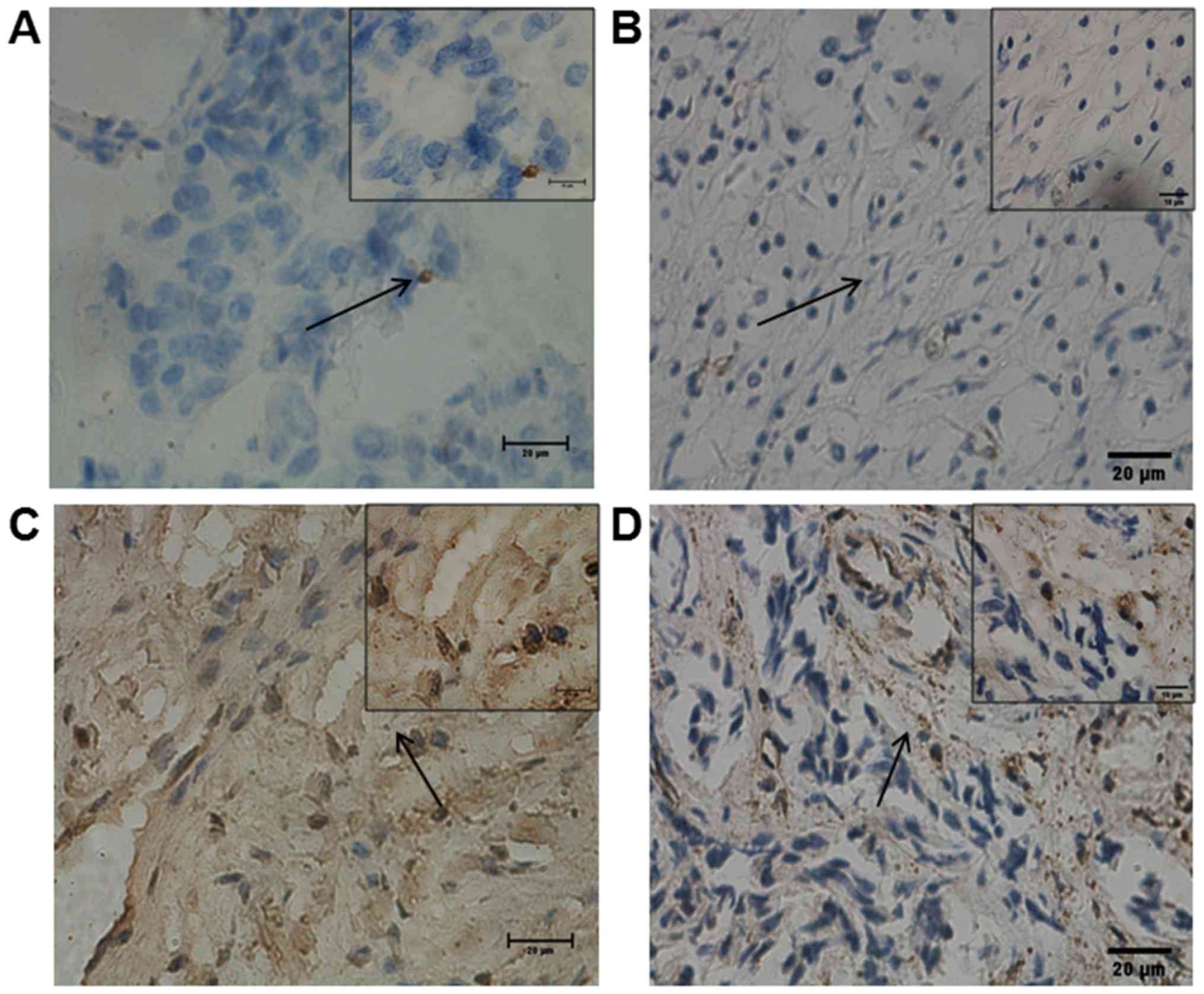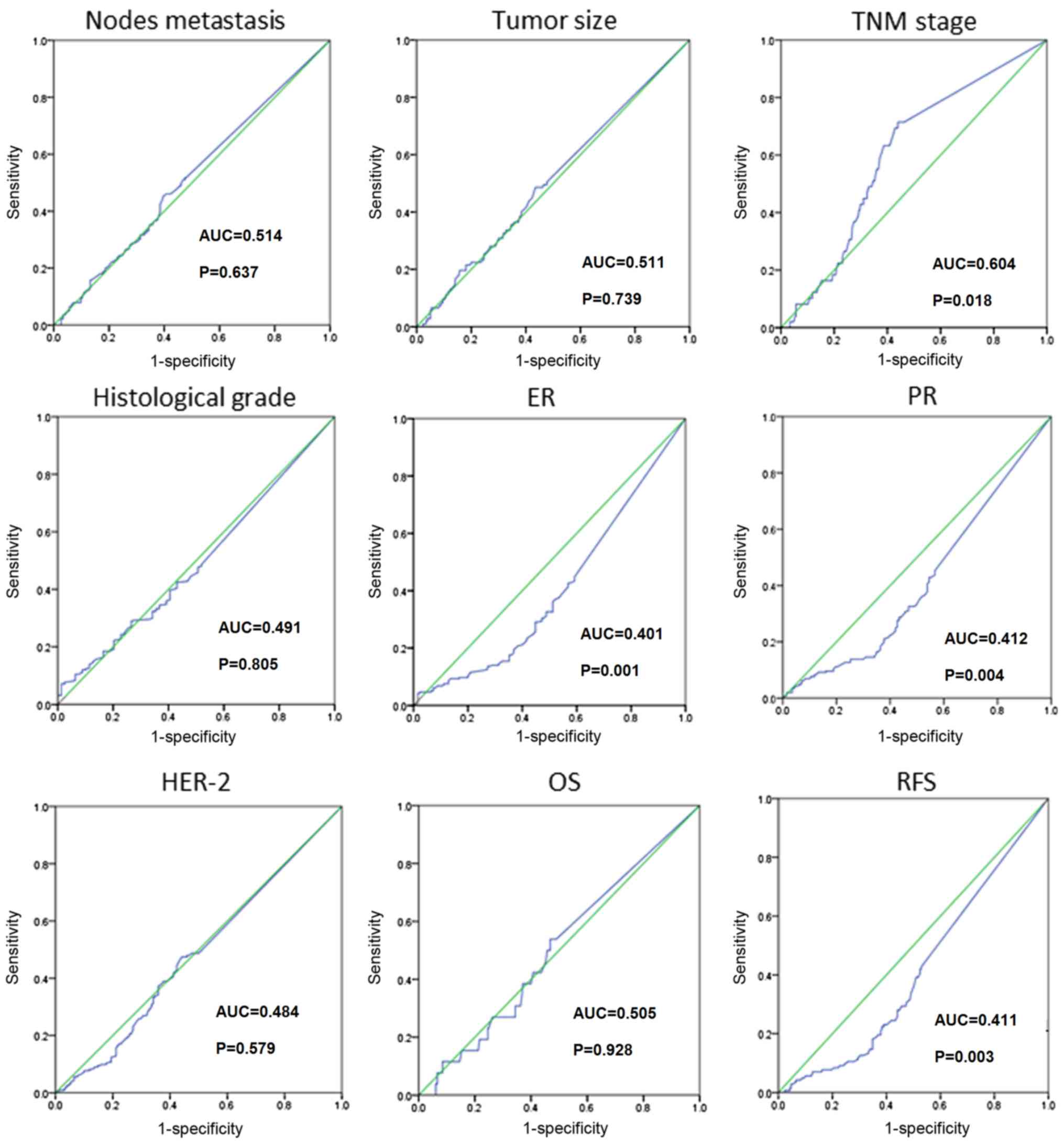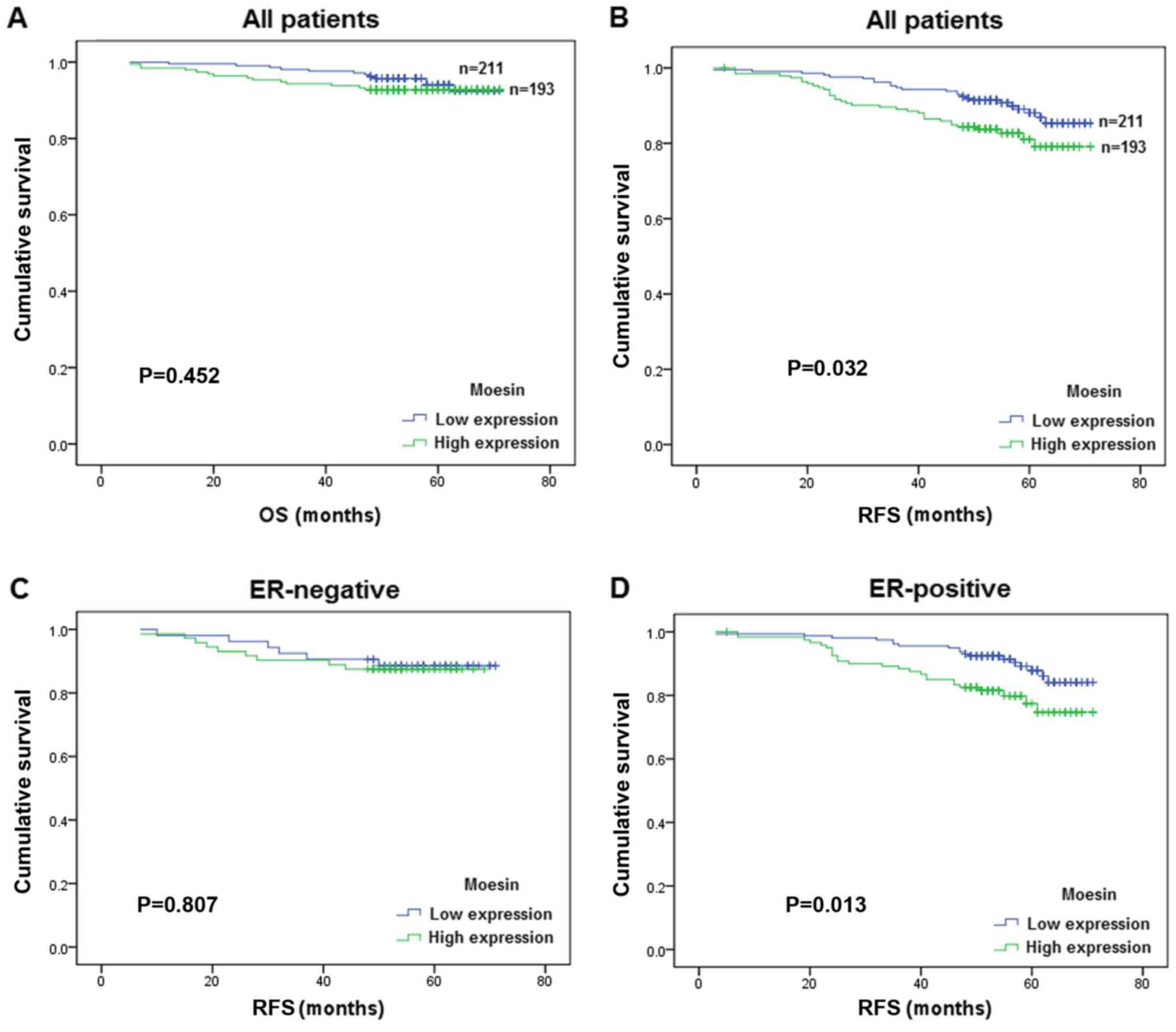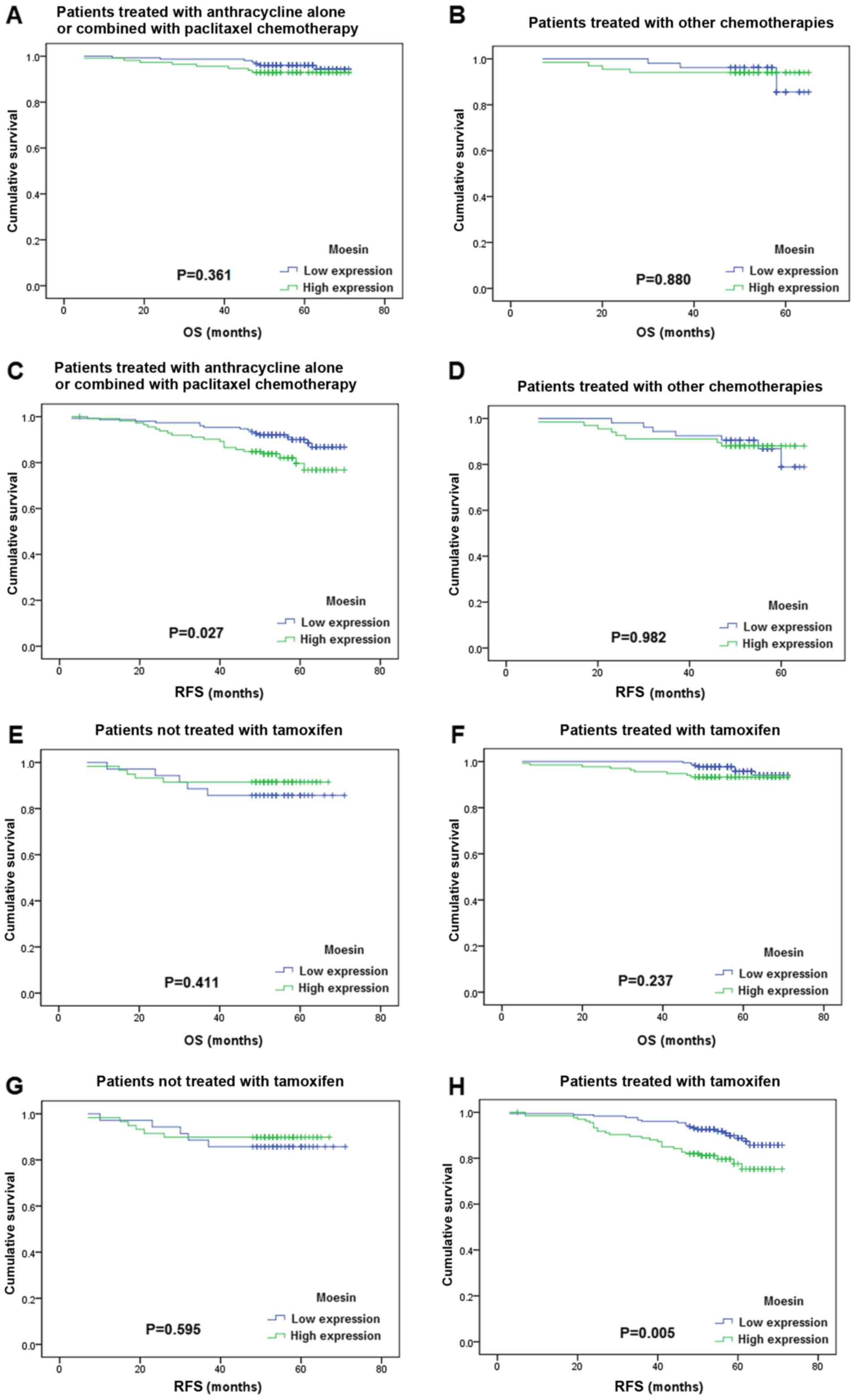|
1
|
Torre LA, Bray F, Siegel RL, Ferlay J,
Lortet-Tieulent J and Jemal A: Global cancer statistics, 2012. CA
Cancer J Clin. 65:87–108. 2015. View Article : Google Scholar : PubMed/NCBI
|
|
2
|
Azim HA and Ibrahim AS: Breast cancer in
Egypt, China and Chinese: Statistics and beyond. J Thorac Dis.
6:864–866. 2014.PubMed/NCBI
|
|
3
|
Bretscher A, Edwards K and Fehon RG: ERM
proteins and merlin: Integrators at the cell cortex. Nat Rev Mol
Cell Biol. 3:586–599. 2002. View
Article : Google Scholar : PubMed/NCBI
|
|
4
|
Tsukita S and Yonemura S: Cortical actin
organization: Lessons from ERM (ezrin/radixin/moesin) proteins. J
Biol Chem. 274:34507–34510. 1999. View Article : Google Scholar : PubMed/NCBI
|
|
5
|
Chishti AH, Kim AC, Marfatia SM, Lutchman
M, Hanspal M, Jindal H, Liu SC, Low PS, Rouleau GA, Mohandas N, et
al: The FERM domain: A unique module involved in the linkage of
cytoplasmic proteins to the membrane. Trends Biochem Sci.
23:281–282. 1998. View Article : Google Scholar : PubMed/NCBI
|
|
6
|
Fehon RG, McClatchey AI and Bretscher A:
Organizing the cell cortex: The role of ERM proteins. Nat Rev Mol
Cell Biol. 11:276–287. 2010. View
Article : Google Scholar : PubMed/NCBI
|
|
7
|
Fievet B, Louvard D and Arpin M: ERM
proteins in epithelial cell organization and functions. Biochim
Biophys Acta. 1773:653–660. 2007. View Article : Google Scholar : PubMed/NCBI
|
|
8
|
Charrin S and Alcover A: Role of ERM
(ezrin-radixin-moesin) proteins in T lymphocyte polarization,
immune synapse formation and in T cell receptor-mediated signaling.
Front Biosci. 11:1987–1997. 2006. View
Article : Google Scholar : PubMed/NCBI
|
|
9
|
Ivetic A and Ridley AJ:
Ezrin/radixin/moesin proteins and Rho GTPase signalling in
leucocytes. Immunology. 112:165–176. 2004. View Article : Google Scholar : PubMed/NCBI
|
|
10
|
Simoncini T, Scorticati C, Mannella P,
Fadiel A, Giretti MS, Fu XD, Baldacci C, Garibaldi S, Caruso A,
Fornari L, et al: Estrogen receptor alpha interacts with Galpha13
to drive actin remodeling and endothelial cell migration via the
RhoA/Rho kinase/moesin pathway. Mol Endocrinol. 20:1756–1771. 2006.
View Article : Google Scholar : PubMed/NCBI
|
|
11
|
Brown LM, Helmke SM, Hunsucker SW,
Netea-Maier RT, Chiang SA, Heinz DE, Shroyer KR, Duncan MW and
Haugen BR: Quantitative and qualitative differences in protein
expression between papillary thyroid carcinoma and normal thyroid
tissue. Mol Carcinog. 45:613–626. 2006. View Article : Google Scholar : PubMed/NCBI
|
|
12
|
Zhu X, Morales FC, Agarwal NK, Dogruluk T,
Gagea M and Georgescu MM: Moesin is a glioma progression marker
that induces proliferation and Wnt/β-catenin pathway activation via
interaction with CD44. Cancer Res. 73:1142–1155. 2013. View Article : Google Scholar : PubMed/NCBI
|
|
13
|
Piao J and Liu S, Xu Y, Wang C, Lin Z, Qin
Y and Liu S: Ezrin protein overexpression predicts the poor
prognosis of pancreatic ductal adenocarcinomas. Exp Mol Pathol.
98:1–6. 2015. View Article : Google Scholar : PubMed/NCBI
|
|
14
|
Bartholow TL, Chandran UR, Becich MJ and
Parwani AV: Immunohistochemical staining of radixin and moesin in
prostatic adenocarcinoma. BMC Clin Pathol. 11:12011. View Article : Google Scholar : PubMed/NCBI
|
|
15
|
Kobayashi H, Sagara J, Kurita H, Morifuji
M, Ohishi M, Kurashina K and Taniguchi S: Clinical significance of
cellular distribution of moesin in patients with oral squamous cell
carcinoma. Clin Cancer Res. 10:572–580. 2014. View Article : Google Scholar
|
|
16
|
Charafe-Jauffret E, Monville F, Bertucci
F, Esterni B, Ginestier C, Finetti P, Cervera N, Geneix J,
Hassanein M, Rabayrol L, et al: Moesin expression is a marker of
basal breast carcinomas. Int J Cancer. 121:1779–1785. 2007.
View Article : Google Scholar : PubMed/NCBI
|
|
17
|
Fernando H, Martin TA, Douglas-Jones A,
Kynaston HG, Mansel RE and Jiang WG: Expression of the ERM family
members (ezrin, radixin and moesin) in breast cancer. Exp Ther Med.
1:153–160. 2010.PubMed/NCBI
|
|
18
|
Wang CC, Liau JY, Lu YS, Chen JW, Yao YT
and Lien HC: Differential expression of moesin in breast cancers
and its implication in epithelial-mesenchymal transition.
Histopathology. 61:78–87. 2012. View Article : Google Scholar : PubMed/NCBI
|
|
19
|
Edge SB, Byrd DR and Compton CC: AJCC
Cancer Staging Manual. 7th. Springer; New York, NY: 2009
|
|
20
|
Elston CW and Ellis IO: Pathological
prognostic factors in breast cancer. I. The value of histological
grade in breast cancer: Experience from a large study with
long-term follow-up. Histopathology. 19:403–410. 1991. View Article : Google Scholar : PubMed/NCBI
|
|
21
|
Fang Y, Wei J, Cao J, Zhao H, Liao B, Qiu
S, Wang D, Luo J and Chen W: Protein expression of ZEB2 in renal
cell carcinoma and its prognostic significance in patient survival.
PLoS One. 8:e625582013. View Article : Google Scholar : PubMed/NCBI
|
|
22
|
Zhu W, Cai MY, Tong ZT, Dong SS, Mai SJ,
Liao YJ, Bian XW, Lin MC, Kung HF, Zeng YX, et al: Overexpression
of EIF5A2 promotes colorectal carcinoma cell aggressiveness by
upregulating MTA1 through C-myc to induce
epithelial-mesenchymaltransition. Gut. 61:562–575. 2012. View Article : Google Scholar : PubMed/NCBI
|
|
23
|
Wang X, Liu M and Zhao CY: Expression of
ezrin and moesin related to invasion, metastasis and prognosis of
laryngeal squamous cell carcinoma. Genet Mol Res. 13:8002–8013.
2014. View Article : Google Scholar : PubMed/NCBI
|
|
24
|
Calhoun BC and Collins LC: Predictive
markers in breast cancer: An update on ER and HER2 testing and
reporting. Semin Diagn Pathol. 32:362–369. 3015. View Article : Google Scholar
|
|
25
|
Carmeci C, Thompson DA, Kuang WW,
Lightdale N, Furthmayr H and Weigel RJ: Moesin expression is
associated with the estrogen receptor-negative breast cancer
phenotype. Surgery. 124:211–217. 1998. View Article : Google Scholar : PubMed/NCBI
|
|
26
|
Clucas J and Valderrama F: ERM proteins in
cancer progression. J Cell Sci. 127:267–275. 2015. View Article : Google Scholar
|
|
27
|
Jung WY, Kang Y, Lee H, Mok YJ, Kim HK,
Kim A and Kim BH: Expression of moesin and CD44 is associated with
poor prognosis in gastric adenocarcinoma. Histopathology.
63:474–481. 2013.PubMed/NCBI
|
|
28
|
Ichikawa T, Masumoto J, Kaneko M, Saida T,
Sagara J and Taniguchi S: Expression of moesin and its associated
molecule CD44 in epithelial skin tumors. J Cutan Pathol.
25:237–243. 1998. View Article : Google Scholar : PubMed/NCBI
|
|
29
|
Wu M, Liu DY, Yuan XR, Liu Q, Jiang XJ,
Yuan D, Huang J, Li XJ and Yang ZQ: The expression of moesin in
astrocytoma: Correlation with pathologic grade and poor clinical
outcome. Med Oncol. 30:3722013. View Article : Google Scholar : PubMed/NCBI
|
|
30
|
Mhawech-Fauceglia P, Wang D, Lele S,
Frederick PJ, Pejovic T and Liu S: Claudin7 and moesin in
endometrial Adenocarcinoma; a retrospective study of 265 patients.
BMC Res Notes. 5:652012. View Article : Google Scholar : PubMed/NCBI
|
|
31
|
Chotteau-Lelièvre A, Révillion F,
Lhotellier V, Hornez L, Desbiens X, Cabaret V, de Launoit Y and
Peyrat JP: Prognostic value of ERM gene expression in human primary
breast cancers. Clin Cancer Res. 10:7297–7303. 2004. View Article : Google Scholar : PubMed/NCBI
|
|
32
|
Halon A, Donizy P, Surowiak P and
Matkowski R: ERM/Rho protein expression in ductal breast cancer: A
15 year follow-up. Cell Oncol (Dordr). 36:181–190. 2013. View Article : Google Scholar : PubMed/NCBI
|
|
33
|
Giretti MS, Montt Guevara MM, Cecchi E,
Mannella P, Palla G, Spina S, Bernacchi G, Di Bello S, Genazzani
AR, Genazzani AD and Simoncini T: Effects of estetrol on migration
and invasion in T47-D breast cancer cells through the actin
cytoskeleton. Front Endocrinol (Lausanne). 5:802014. View Article : Google Scholar : PubMed/NCBI
|
|
34
|
Flamini MI, Fu XD, Sanchez AM, Giretti MS,
Garibaldi S, Goglia L, Pisaneschi S, Tosi V, Genazzani AR and
Simoncini T: Effects of raloxifene on breast cancer cell migration
and invasion through the actin cytoskeleton. J Cell Mol Med.
13:2396–2407. 2009. View Article : Google Scholar : PubMed/NCBI
|


















